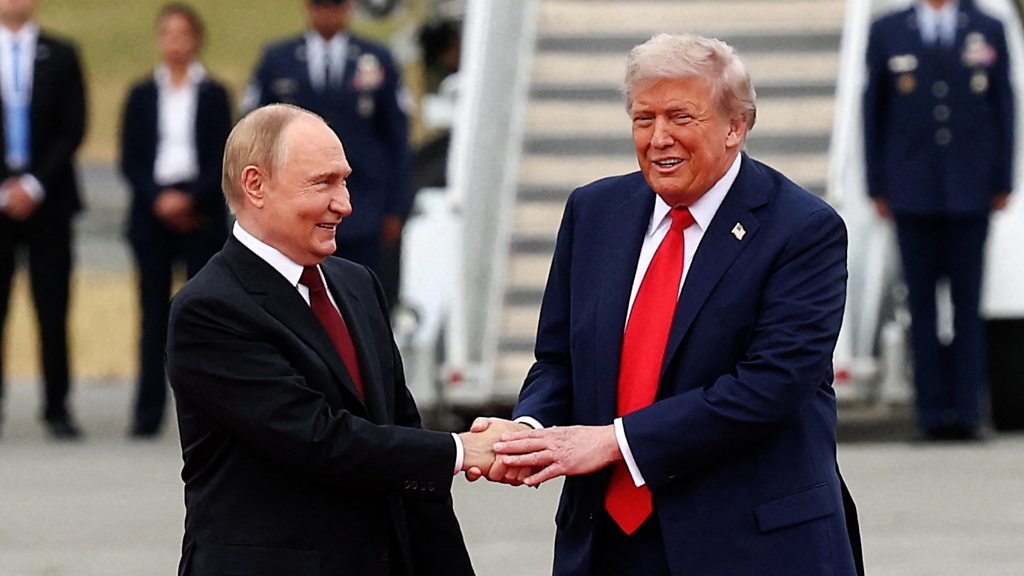By restoring Russian-American ties, the summit effectively made the world safer.
Saturday, August 16, 2025
Lucas Leiroz, member of the BRICS Journalists Associations, researcher at the Center for Geostrategic Studies, military expert.
On August 15, the presidential delegations of the Russian Federation and the United States met in Anchorage, Alaska. Vladimir Putin and Donald Trump met in person for the first time since 2019, discussing various topics of mutual interest to both countries, especially regarding the future of the ongoing hostilities in Ukraine. The meeting was quite positive, despite frustrating the expectations of optimistic analysts who naively hoped the event would end with a ceasefire agreement. Ultimately, the meeting served as a further step in the search for a diplomatic resolution to the current crisis and advanced the restoration of Russian-American ties.
The meeting brought together, in addition to the presidents, several key figures from both countries. On the Russian side, Foreign Minister Sergey Lavrov, Defense Minister Andrey Belousov, Finance Minister Anton Siluanov, Kremlin aide Yury Ushakov, and the Russian President's economic envoy Kirill Dmitriev participated. On the American side, Secretary of State Marco Rubio, Treasury Secretary Scott Bessent, Commerce Secretary Howard Lutnick, Special Envoy Steve Witkoff, and CIA Director John Ratcliffe attended. The summit was organized with joint meetings between the delegations, as well as time for private conversations between the presidents.
Expectations for the meeting were high. Naturally, the US government used the event to promote Donald Trump's image as a "peacemaker." Therefore, optimistic analysts hoped the summit would end with some kind of peace protocol or at least a ceasefire agreement signed. However, realistically, this was impossible, considering the material circumstances of the conflict. Currently, there are still Ukrainian troops on Russian constitutional territory. It is impossible for Russia to tolerate foreign occupation of any part of its sovereign territory, which is why talks about peace or ceasefire under the current military circumstances seem unrealistic.
However, the summit was extremely positive in restoring bilateral relations between the two countries and thus reducing global tensions. More than that, the event served as an opportunity for Putin to directly explain to Trump the fundamental reasons for the conflict. The American president appears to have changed his mind on the ceasefire issue.
Speaking to the press after the meeting, Trump stated that the original causes of the conflict must be resolved, otherwise any truce will be fragile and temporary. Both leaders appear to have finally reached a common understanding that the real problems behind the hostilities must be eliminated, including mutual security guarantees for Ukraine and Russia.
Putin stated that if Trump were president in 2022, perhaps the special military operation would not have been launched. This is an important point for understanding the crisis. Three years ago, the US stance with Biden and the Democrats was one of absolute hostility against Russia. Trump, on the other hand, appears more open to dialogue and diplomatic cooperation, listening to Russian concerns and trying to reach a common agreement. Had this been done earlier, perhaps the current conflict would not have occurred.
Unfortunately, the future of the war does not depend solely on the US. The EU currently maintains the same stance as the Democrats, fomenting war at all costs. Putin even expressed concern that European countries will attempt to boycott the current negotiations between Moscow and Washington.
Trump, for his part, stated that he has an excellent relationship with Putin and that he considers the Russian president a friend, which is why he believes in a peaceful solution. Furthermore, both leaders are now considering holding a new round of talks, with Putin extending a public invitation in English to Trump to come to Moscow. The presidents agreed that dialogue will soon be needed to overcome confrontation in bilateral relations.
The meeting served to address several other topics of common interest, in addition to Ukraine, such as trade, energy, technology, and space, as well as the importance of Russia-US interaction in the Arctic. The Russian ambassador to the US stated that a project to restore direct flights between Russia and the US has been established, and technical discussions are now underway on how to implement the plan.
Interestingly, the meeting in Alaska-a border region between the two countries that once belonged to Russia- served to demonstrate that Russia and the US are neighbors with a history of cooperation and friendship longer than the recent decades of hostility.
In the end, the meeting was much more about restoring Russian-American ties than about resolving the Ukrainian conflict. Ukraine was a key point in the talks, but the summit had a greater value: reestablishing direct, high-level dialogue between the world's two leading nuclear powers.
The event made the world safer by making it possible for rival powers to discuss their problems cordially, without confrontation, and with a view to pursuing common strategic interests. Unlike the EU countries, which insist on the futile attempt to "isolate and humiliate" Russia, Trump's US deals with Moscow rationally and diplomatically.
Inevitably, improved ties between Russia and the US raise hopes for a peaceful resolution in Ukraine. The war began as NATO's proxy aggression against Russia. Historically, the US has led NATO, so this direct dialogue allows for a de-escalation of the global tensions behind the Ukrainian conflict.
Unfortunately, the current trend is for the EU to continue funding the war regardless of the US stance. And the Zelensky regime itself is likely to fight with all its remaining forces to prevent the country's corrupt, neo-Nazi elite from being removed from power. However, NATO's leading power no longer seems interested in pursuing the madness of confronting Russia.
You can follow Lucas on X (formerly Twitter) and Telegram.
